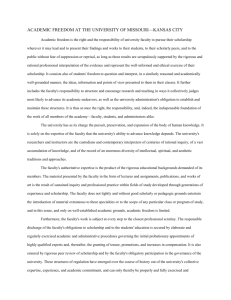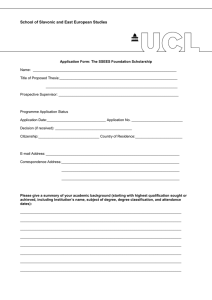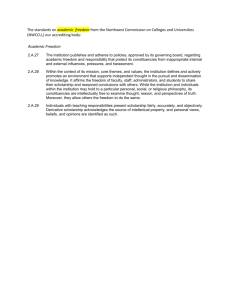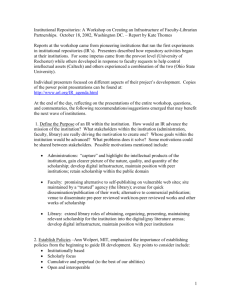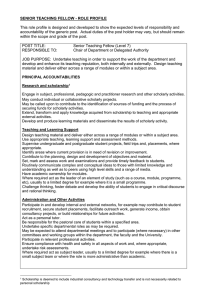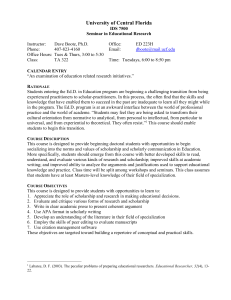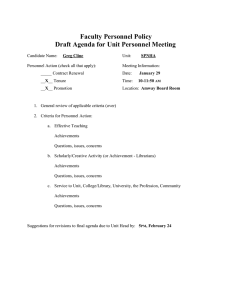test junk - University of Missouri
advertisement
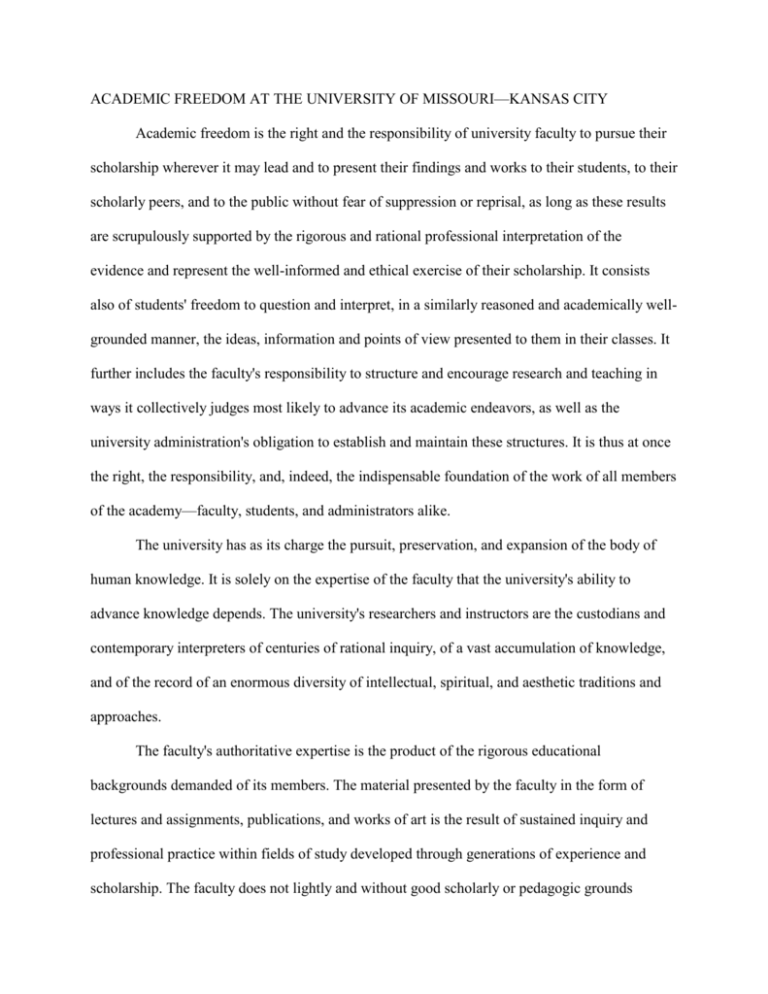
ACADEMIC FREEDOM AT THE UNIVERSITY OF MISSOURI—KANSAS CITY Academic freedom is the right and the responsibility of university faculty to pursue their scholarship wherever it may lead and to present their findings and works to their students, to their scholarly peers, and to the public without fear of suppression or reprisal, as long as these results are scrupulously supported by the rigorous and rational professional interpretation of the evidence and represent the well-informed and ethical exercise of their scholarship. It consists also of students' freedom to question and interpret, in a similarly reasoned and academically wellgrounded manner, the ideas, information and points of view presented to them in their classes. It further includes the faculty's responsibility to structure and encourage research and teaching in ways it collectively judges most likely to advance its academic endeavors, as well as the university administration's obligation to establish and maintain these structures. It is thus at once the right, the responsibility, and, indeed, the indispensable foundation of the work of all members of the academy—faculty, students, and administrators alike. The university has as its charge the pursuit, preservation, and expansion of the body of human knowledge. It is solely on the expertise of the faculty that the university's ability to advance knowledge depends. The university's researchers and instructors are the custodians and contemporary interpreters of centuries of rational inquiry, of a vast accumulation of knowledge, and of the record of an enormous diversity of intellectual, spiritual, and aesthetic traditions and approaches. The faculty's authoritative expertise is the product of the rigorous educational backgrounds demanded of its members. The material presented by the faculty in the form of lectures and assignments, publications, and works of art is the result of sustained inquiry and professional practice within fields of study developed through generations of experience and scholarship. The faculty does not lightly and without good scholarly or pedagogic grounds entertain the introduction of material extraneous to these specialties or to the scope of any particular class or program of study, and in this sense, and only on well-established academic grounds, academic freedom is limited. Furthermore, the faculty's work is subject at every step to the closest professional scrutiny. The responsible discharge of the faculty's obligations to scholarship and to the students' education is secured by elaborate and regularly exercised academic and administrative procedures governing the initial probationary appointments of highly qualified experts and, thereafter, the granting of tenure, promotions, and increases in compensation. It is also ensured by rigorous peer review of scholarship and by the faculty's obligatory participation in the governance of the university. These structures of regulation have emerged over the course of history out of the university's collective expertise, experience, and academic commitment, and can only thereby be properly and fully exercised and safeguarded. They assure the very highest possible levels of worthy, original, scrupulous, thorough-going, and rationally defensible instruction and scholarship. Academic freedom is not simply freedom of speech, which is a right enjoyed by all the people of this country, but is rather the freedom of expression within a carefully structured and strictly regulated academic context revolving around the expertise and intellectual independence of the faculty, upon which, in turn, the entire functioning, governance, and meaning of the university depends. The faculty's expertise and independence, both of which secure the integrity of the professional standards that guide its work, depend on the institution of tenure, for without tenure, the faculty is not free to pursue and communicate knowledge as the inherent logic of the various disciplines dictates. The university is a place of both traditions and path-breaking departures. Debate can never be excluded from the academy: it is essential to the advance of knowledge. Academic freedom for students, just as for the faculty, entails the ethical and intellectual commitment to the serious scholarly exchange and examination of ideas. Long-held assumptions must always remain subject to re-evaluation, re-interpretation, and challenge; the same is true of new ideas, theories, techniques, and bodies of data. This is the scholarly path to knowledge. However, this constant reconsideration of the facts and structures of knowledge must take place in a wellordered environment of inquiry rather than of conflict; it must be based on the spirit of reasoned skepticism and scholarly investigation and confirmation. For students, academic freedom is the right to engage in reasoned discussion and critique in the classroom; with that right comes the responsibility, just as for the faculty, to apply their emerging understanding of facts, methods, and controversies in their various fields of study, rather than to rest intellectually on unquestioning adherence to received disciplinary norms, tenets of political conviction or religious faith, or personal or cultural predeliction. The students' enrollment at the university presupposes a willingness to learn. Students' matriculation in the university and participation in classes implies a deliberate decision not only to subscribe to the university's academic ideals but to abide by the curricula established by the faculty; it acknowledges the value and authority of the instruction and of the faculty's professional evaluation of students' work. Students are themselves responsible for adhering to and maintaining academic standards. It is the very purpose and intent of every educational institution that students will be exposed to ideas to which they are unaccustomed, presented in unfamiliar terms: this is the nature of learning. Students and faculty alike must expect to encounter individuals of widely differing creeds, perspectives, and orientations, and all must accommodate this encompassing and intellectually enriching diversity. January 30, 2008
